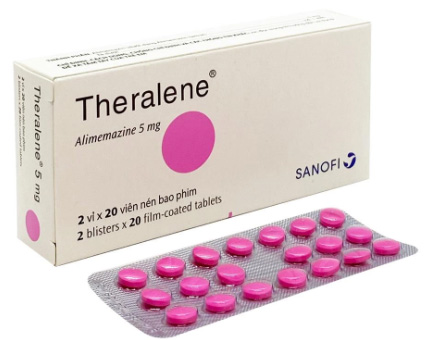
Alimemazin Evolan – Alimemazine Overdose, Dose,Uses, And Side Effects
Alimemazine, also famous as trimeprazine, provided as a tartrate salt, is a phenothiazine derive that is acted as an antipruritic. Alimemazin is a sedative, hypnotic, and antiemetic to avoid motion sickness.
Read MoreAlgesal – Diethylaminosalicylate uses, dose and side effects
Algae salve is an ointment used to relieve pain in the local treatment of temporary muscle pain.
Read MoreAlganex – Tenoxicam uses, dose and side effects
Alganex is used to treat chronic rheumatoid arthritis ( rheumatoid arthritis ), joint wear and tear ( osteoarthritis ), and Bechterew’s disease (spinal stiffness) as well as a short-term treatment of mild to moderate, acute inflammation that is not tied to the joints. Alganex is also used for pain associated with menstruation or surgery.
Read MoreAlfuzosin Teva – Alfuzosin hydrochloride uses, dose and side effects
Alfuzosin Teva belongs to a group of medicines called adrenergic alpha-receptor blockers or alpha-receptor blockers. It is used to treat moderate to severe symptoms from an enlarged prostate, in other words, benign growth of the prostate. An enlarged prostate can cause urination problems such as a frequent need to urinate and difficulty urinating, especially at night. The alpha receptor blockers relax the muscles in the prostate, bladder, and urethra, which improves urine flow from the bladder.
Read MoreAlfuzosin Rivopharm – Alfuzosin hydrochloride uses, dose and side effects
Alfuzosin Rivopharm relaxes the muscles in the prostate, bladder, and urethra, which improves urine flow. Alfuzosin Rivopharm is used for benign prostate enlargement and for complementary treatment with a catheter in the urethra. Alfuzosin Rivopharm belongs to a group of medicines called alpha-1-blocking medicines.
Read MoreAlfuzosin Orion – Alfuzosin hydrochloride uses, dose and side effects
Alfuzosin Orion belongs to a group of medicines called alpha-1 blockers. Alfuzosin is used to treat moderate to severe symptoms of benign prostatic hyperplasia. This is a condition in which the prostate gland is enlarged ( hyperplasia ), but the growth itself is not the same as cancer (it is benign). This is more common in older men.
Read MoreAlfuzosin Hexal – Alfuzosin uses, dose and side effects
Alfuzosin Hexal belongs to a group of medicines called alpha-1 receptor blockers or alpha-receptor blockers.
Read MoreAlfentanil Hameln – Alfentanil uses, dose and side effects
Alfentanil Hameln belongs to a group of medicines called opioid analgesics. It is used to relieve or prevent pain. Alfentanil Hameln is used as an anesthetic in various types of surgery.
Read MoreAlfadil BPH – Doxazosin uses, dose and side effects
Alfadil BPH belongs to a group of medicines called alpha-blocking agents. It is used to treat the symptoms of benign prostatic hyperplasia. Alfadil BPH improves urine flow by reducing muscle tension in the prostate and bladder orifice.
Read MoreAlfadil – Doxazosin uses, dose and side effects
Alfadil belongs to a group of medicines called alpha-blockers and is used to treat non-organ-related high blood pressure ( essential hypertension ). Alfadil lowers blood pressure by dilating the small blood vessels so that the blood passes more easily.
Read MoreAlphacalcidol Orifarm – Alpha-Calcidol uses, dose and side effects
Alfacalcidol Orifarm belongs to a group of medicines called vitamin D analogs. It is a form of D vitamin. D vitamin controls the level of the two substances in your body. These substances are calcium and phosphate. Your body needs both substances for healthy bones and teeth.
Read MoreAlfacalcidol Alternova – Alpha-calcidol uses, dose and side effects
Alfacalcidol is used when the body produces too little D vitamin. D vitamin is necessary for the body to absorb calcium. Alpha-calcidiol can normalize calcium levels and counteract the deficiency symptoms (fatigue, muscle weakness, itching, and depression).
Read MoreAlendronate Teva Weekly Tablet – Alendronic acid uses, dose and side effects
Alendronate Teva Weekly Tablets belong to a group of medicines called bisphosphonates that counteract the loss of bone mass in the body.
Read MoreAlendronate Teva – Alendronic acid uses, dose and side effects
Alendronate Teva belongs to a group of non-hormonal medicines called bisphosphonates, which are used in the treatment of skeletal diseases. Alendronate Teva acts directly on the skeleton by reducing the risk of fractures.
Read MoreAlendronate STADA Weekly tablet – Alendronic acid uses, dose and side effects
Alendronate belongs to a group of medicines called bisphosphonates. Alendronate Stada Weekly Tablet prevents loss of bone mass and reduces the risk of spine and hip fractures.
Read MoreAlendronate STADA – Alendronic acid uses, dose and side effects
Alendronate belongs to a group of medicines called bisphosphonates. Alendronate Stada prevents loss of bone mass and reduces the risk of spine and hip fractures (bone fractures).
Read MoreAlendronate Sandoz Weekly Tablet – Alendronic acid uses, dose and side effects
Alendronate Sandoz Weekly Tablet is a film-coated tablet containing the active substance sodium alendronate trihydrate.
Read MoreAlendronate Orifarm Weekly Tablet – Sodium alendronate uses, dose and side effects
Alendronate Orifarm Weekly Tablets belong to a class of non-hormonal preparations, called bisphosphonates.
Read MoreAlendronate Mylan Weekly Tablet – Alendronic acid uses, dose and side effects
Alendronate Mylan Weekly tablet contains the active substance alendronic acid, in the form of sodium alendronate.
Read MoreAlendronate / Cholecalciferol Accord – Alendronic acid uses, dose and side effects
Alendronate / Cholecalciferol Accord is a tablet that contains the two active substances alendronic acid (usually called alendronate) and cholecalciferol, also called vitamin D 3
Read MoreAlendronate Bluefish Weekly tablet 70 mg – Sodium alendronate uses, dose and side effects
The active ingredient, sodium alendronate trihydrate, belongs to a group of medicines called “bisphosphonates”. It prevents osteoporosis in postmenopausal women and helps rebuild the skeleton. It reduces the risk of spine and hip fractures.
Read More